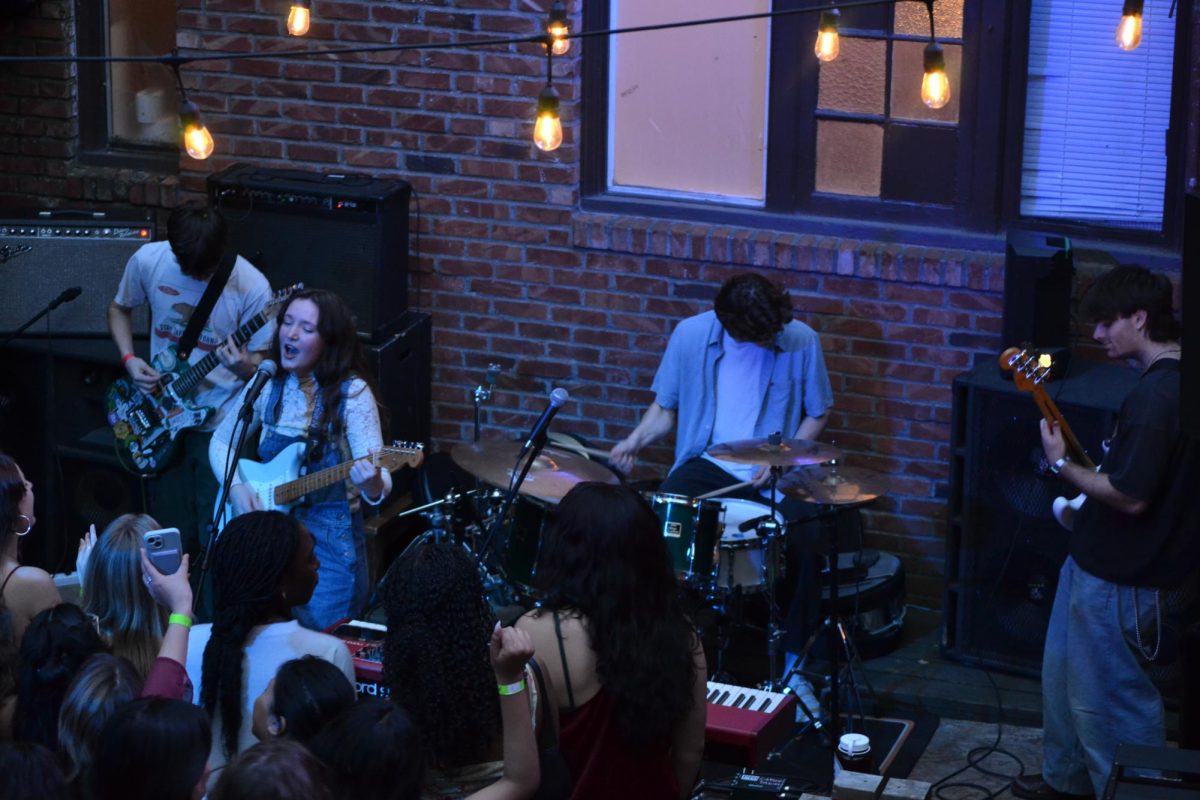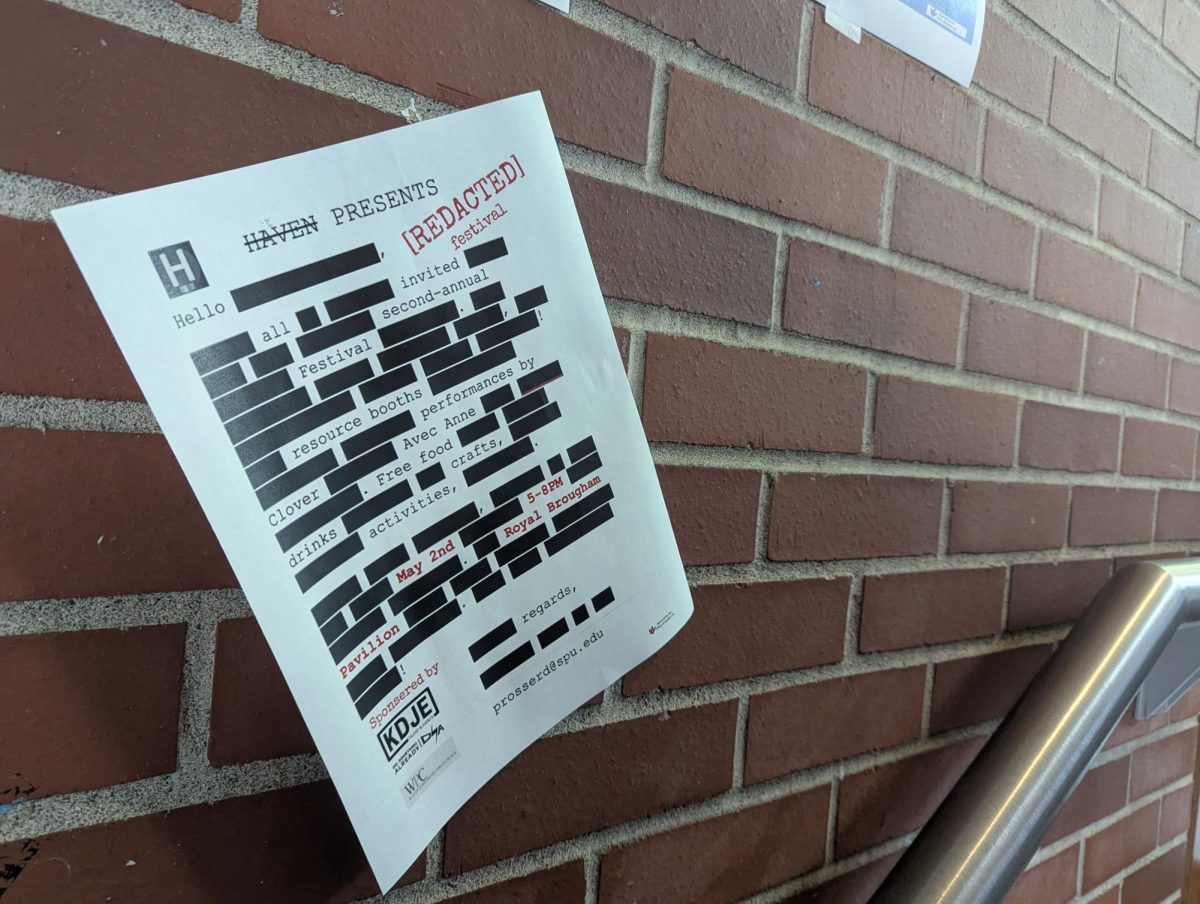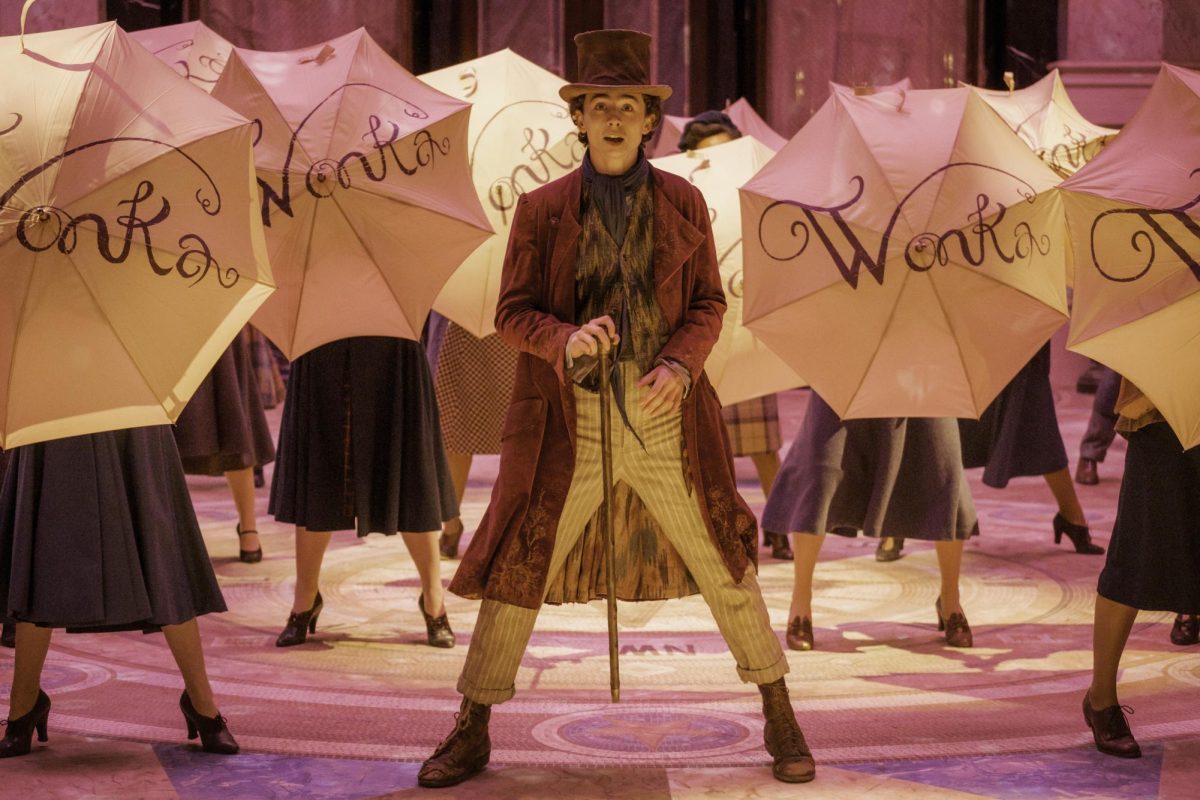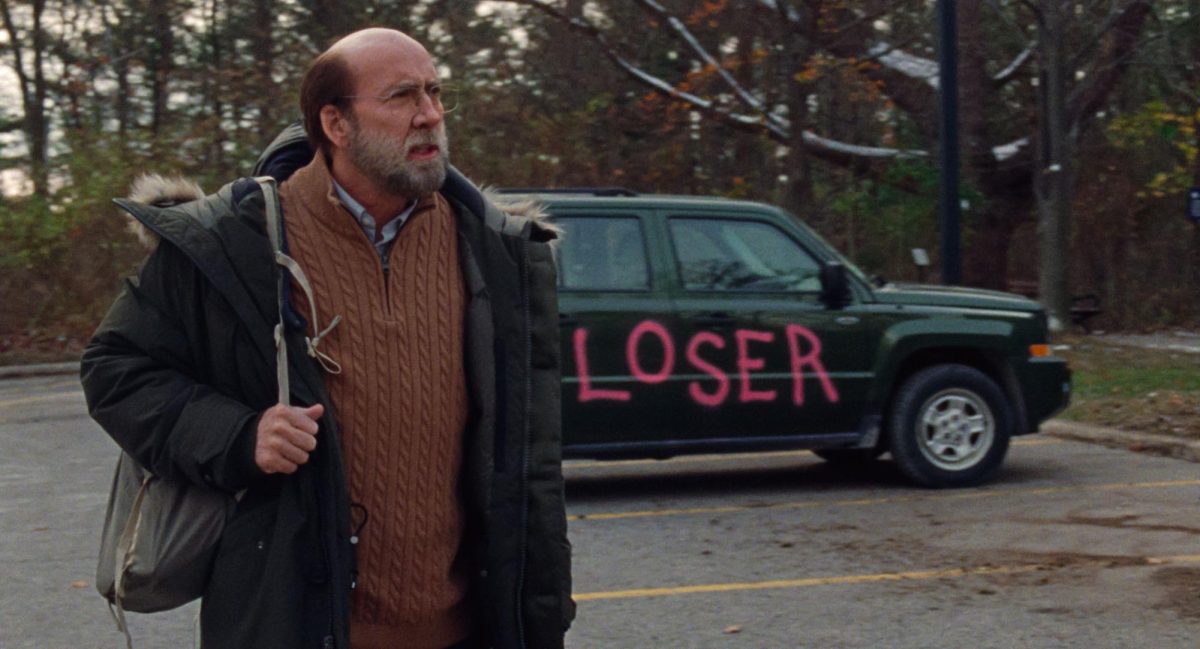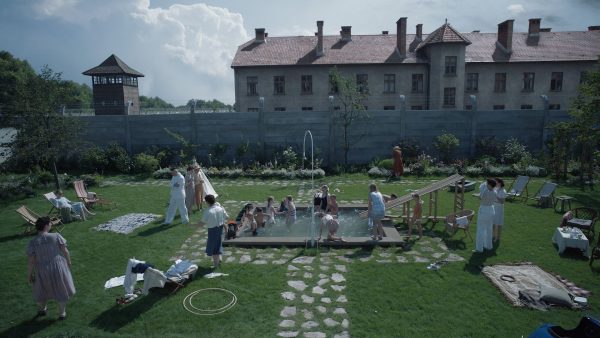
★★★★☆ (4.0 stars)
I did not realize I was holding my breath until “Directed by Jonathan Glazer” appeared on the screen as credits slowly — because they could not come fast enough — began to roll, and I found myself letting out the biggest sigh.
As the audience filed out of the theater lugging around the half-eaten bags of popcorn they could not get themselves to stomach, I organized my notes. Using the same pen and paper as always, I found my words smudged and the side of my hand stained with black ink.
“The Zone of Interest,” centers around Auschwitz commandant Rudolf Höss (Christian Freidel) and his wife Hedwig Höss (Sandra Hüller) as they attempt to build their dream home for their family, fit with a beautiful garden, and live their dream life right next door to the deadliest concentration camp. Glazer’s directing was so terrifying my hands nervously sweat their way through my notes.
It is hard to explain what it feels like to sit through Jonathan Glazer’s “The Zone of Interest” because it is not just a watch; it is an experience.
As someone aspiring to one day enter the film industry, I have an impossibly long list of movies I know I need to watch at least once, because of their relevancy and acclaimed greatness. There are a handful of said movies that I dread getting to. I often have to question, do I want to finally knock this off my watchlist? Or do I want to have a pleasant evening? This movie instantly ranked its way up to the top of my “incredible but never want to sit through again” list.
This film is not enjoyable in the slightest, but it is not supposed to be.
With a non-conventional narrative structure that relies almost entirely on sound, “The Zone of Interest” is the scariest thing you will never see. Everything you could imagine you would hear living next to such a place, you do hear, for the entirety of the film. Through dialogue and silence, there is no escaping the sounds coming from over the wall. The normalization of this background noise is the plot.
For the first portion of the movie, you sit on edge expecting to be let into the horrors occurring next door, dreading the moment it all becomes real; until you realize that you are becoming just as complicit as the characters you have been watching in disgust.
There is no need to see what lies behind those walls — we know very well what is happening, and seeing it will not make any difference. Just because the truth is neglected, does not mean it is not real or worthy of our attention.
In one instance Hedwig tends to her garden, holding her baby at her side, quietly humming a tune. Had this been a silent film it would read as a beautiful scene capturing a nice moment in motherhood, the reality of the moment is one of murderous ignorance.
The dissonance of the film is terrifyingly the only connection one has to the story at hand. We have no insight into the family’s inner workings. It is a story that follows the Höss’ but is not about them. Everything we come to know about the family is no more than what the average “outside looking in” would conclude. What we do know about them is what they are choosing to ignore, and in this sense, we know everything there is to know about their existence.
Though the movie is highlighted through snippets of their life and how it changes as Rudolf’s job relocation brings uncertainty and Hedwig’s mother comes for a brief visit, they are not our main focus — the backdrop is.
The performances given are especially quiet for what we expect from dramas. Friedel and Hüller play their roles so nonchalantly, amping up their villainous nature. Though both leads have gone relatively unnoticed in this awards season, they gave two of the most painstakingly memorable performances.
There are only a handful of scenes that outright acknowledge the truth and even then it is discussed in a strictly business manner. The disconnect is so profound that in one scene Rudolf, who organizes the execution systems, accidentally exposes his children to the remains of the camp’s victims because he had not realized where they were sent. Rudolf sets the orders that would result in the handling of those killed in the camp, and yet he is so carelessly preoccupied with his own world that it is even too much for him to remember.
The film is often grey, partially because of the constant stream of smoke we see arising from afar, and partially because the world you exist in through the film’s 105 minutes is bleak. When we do see pops of color, it serves as a reminder that their perfect life only exists because it is curated from the deaths of hundreds of thousands. A red lipstick taken from the coat of a prisoner, bright flowers nourished by ashes, flames reflecting through a window filling the room with orange — each glimpse of color is violent.
The only moment in the film void of any color at all is the only time we see an act of goodness. Shot through a thermal imaging camera, we see a young girl hiding apples around the camp at night for incoming prisoners. It is implied that she too is in hiding, making her bold move all the more contrasting to the Hüller’s proud way of living. Otherwise, the film is shot with astounding realism, making these dramatic interludes all the more striking.
“The Zone of Interest” is not a movie I would lightly recommend to anyone, but those who can handle it will find a remarkably well-crafted film that truthfully captures the importance of remembering the history we are too uncomfortable to face.
While the subject has always left filmmakers and audiences alike questioning how to capture real-life atrocities and at what point it becomes unethical to do so, this film says everything the rest try to, but without an exploitative nature. If you are going to watch a film centered around the events of the Holocaust, it should be this one.
I left the theater feeling physically sick — I was unable to think about much else the rest of the night and was left consistently contemplating it for the rest of my week. Though the movie was more aggressive than I had anticipated, I appreciate the quality of Grazer’s work. There are very few movies that feel ingrained in my brain upon the first watch, but each frame is one that has stuck.
It takes a lot of courage to tackle such a story and Grazer did it with excellence; it is a stand-out in its genre and redefines what horror can be. I would not be surprised if this film is one day considered a crucial moment in film history.
The film’s ending pulls you out of the loose narrative and into real life with chilling shots of the Auschwitz museum being cleaned before opening for the day. Glazer will not let you walk out of his movie without remembering that though we separate it from modern history, this is a reality that still lingers.
















































































